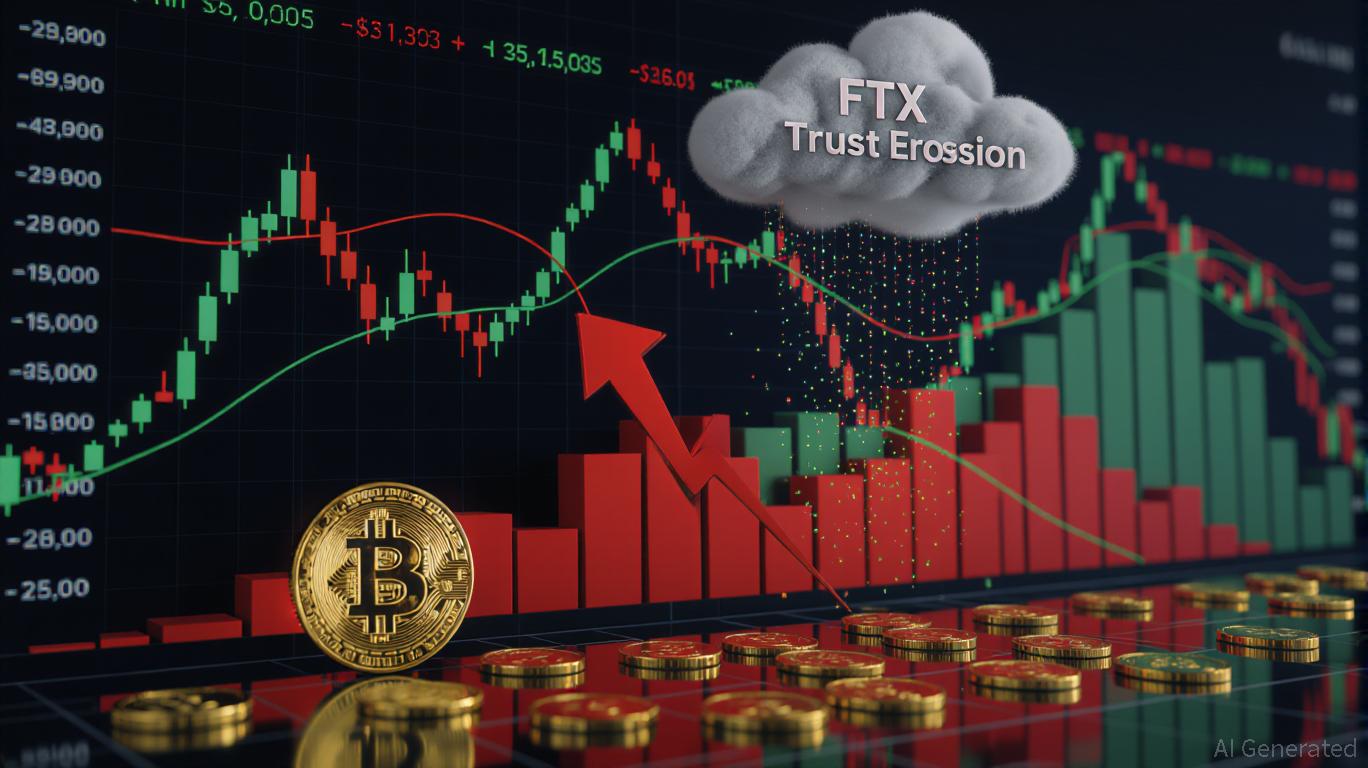Bitcoin News Update: Japan Strives to Foster Crypto Innovation While Enhancing Investor Safeguards Amid Regulatory Reforms
- Japan will reclassify cryptocurrencies as financial products under FIEA, enhancing investor protections and aligning with traditional securities regulations. - FSA proposes 20% capital gains tax, strict insider trading rules, and mandatory disclosures for 105 tokens to mitigate risks and ensure transparency. - Exchanges must provide detailed issuer and blockchain data, while banks may soon hold Bitcoin , reflecting Asia's push for tokenized finance infrastructure. - Regulatory challenges include complian
Japan Plans to Redefine Crypto as Financial Assets, Introduces Insider Trading Regulations
Japan is preparing to categorize cryptocurrencies as financial assets under the Financial Instruments and Exchange Act, aiming to strengthen investor safeguards and bring digital currencies under the same regulatory framework as conventional securities. The Financial Services Agency (FSA)
With this change, cryptocurrencies will be regulated similarly to equities and bonds, obligating exchanges to share comprehensive data about token issuers, blockchain infrastructure, and volatility indicators.

This regulatory initiative comes as Japan emerges as a major center for cryptocurrency,
Japan’s regulatory strategy also covers institutional adoption. The FSA is evaluating whether to permit banks to hold Bitcoin and operate as crypto trading platforms, a move that could broaden investment options and help stabilize the market. This is in line with wider trends in Asia, where Japan, Hong Kong, and Singapore are building out tokenized financial infrastructure. Japan’s focus on hardware-based custody and cold wallet protocols,
Implementing these regulations will present challenges, such as increased compliance costs for exchanges and the risk of market segmentation. Nonetheless,
Disclaimer: The content of this article solely reflects the author's opinion and does not represent the platform in any capacity. This article is not intended to serve as a reference for making investment decisions.
You may also like
The Unexpected Bitcoin Plunge in November 2025: Causes Behind the Drop and Future Prospects for Cryptocurrency Investors
- The November 2025 BTC crash resulted from Fed tightening, lingering FTX trust erosion, and institutional outflows. - Fed's hawkish liquidity controls and inflation focus created toxic conditions for Bitcoin's low-rate-dependent market. - FTX's unresolved $7.1B payouts and $20B institutional exodus since 2022 amplified panic selling through trust deficits. - Crypto investors must now wait for Fed policy clarity and prioritize transparent platforms with regulatory compliance.

Bitcoin Updates Today: Fed Navigates Uncertainty as December Rate Cut Remains Unclear
- Market expectations for a Fed rate cut in December dropped to 52% from 95% a month ago, reflecting deepening policymaker divisions. - Hawks like Collins emphasize inflation risks, while doves argue easing is needed to avoid restrictive policies amid weak labor data. - A government shutdown delayed critical economic reports, complicating decisions as structural shifts demand nuanced policy responses. - Bitcoin gains were capped by reduced cut odds, while broader markets remain sensitive to Fed signals on

Solana News Update: Solana’s Fast Network Draws $1.5 Billion in Stablecoin Growth as USDC and USDT See Significant Increases
- Circle mints $500M USDC on Solana , leveraging its 4,000 TPS speed and $0.002 fees to boost DeFi liquidity. - Solana's 2.4M active addresses and 83M transactions highlight its appeal as Ethereum's high-throughput rival. - Tether simultaneously issues $1B USDT on Ethereum , contrasting with Solana's retail-friendly low-cost model. - Institutional adoption grows via Solana Staking ETF and major firm participation, challenging Ethereum's upgrades. - $1.5B stablecoin surge reflects demand for cross-chain sta

Fed's Policy Direction Shifts: Balancing Prudence and Swift Action in Crucial December Decision
- Fed faces 52% market odds of 25-basis-point rate cut at Dec 10 meeting, down sharply from 95% a month ago amid internal divisions. - Key officials like Collins and Kashkari oppose further easing without clearer labor market deterioration or inflation control below 3%. - Government shutdown delays critical data, forcing policymakers to rely on incomplete information and private-sector indicators. - Uncertainty risks asset markets: Bitcoin stagnates near $103k while real estate and growth stocks face headw
